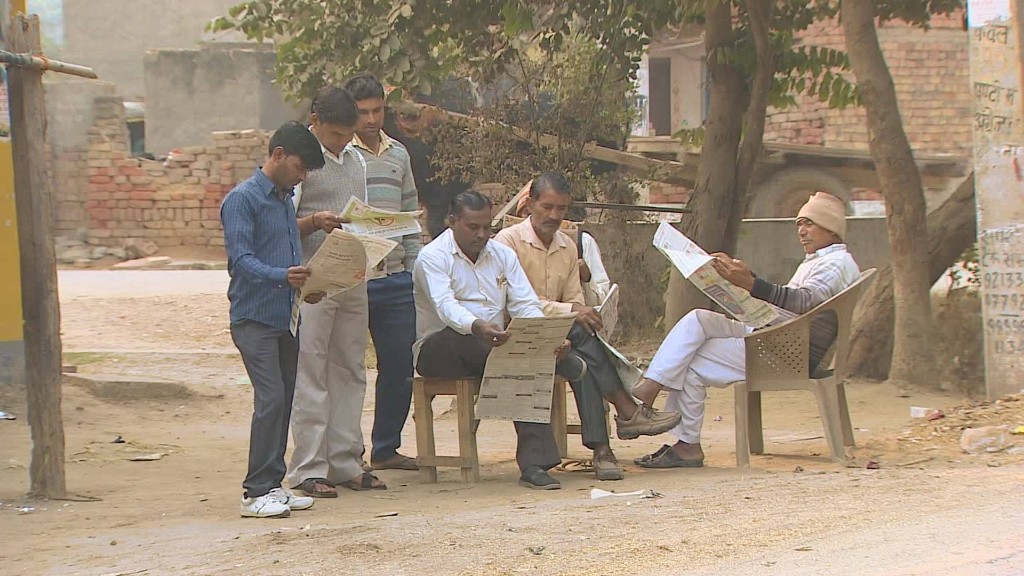
India wants Silicon Valley's tech giants to help solve an unusual problem: The country has far too many men.
Because of a preference for male children, India has one of the largest gender imbalances in the world. Men now outnumber women by 43 million, according to the United Nations.
The imbalance is growing despite bans on abortions based on the sex of a child. It's even illegal for doctors to use an ultrasound to determine the sex of a fetus. Analysts say both measures have made little difference.
Now, India's Health Ministry has received a commitment from Microsoft (MSFT), Yahoo (YHOO) and Google (GOOG) to restrict the promotion of tests that can determine the gender of an unborn child, according to Bindu Sharma, the agency's director of prenatal diagnostics.
Google confirmed its promise in a statement to CNNMoney, saying that it would adhere to Indian regulations and not allow advertisements or promotions of services that would allow for prenatal sex determination and selection.
"Keeping in mind the sensitivities attached to this issue, and to ensure that our technology is being used to curb this retrograde practice, we have decided to disable certain terms from appearing as autocomplete predictions and display a warning message on relevant searches to inform users of the unlawful nature of this subject," a spokesman said.
Yahoo and Microsoft did not respond to requests for comment.
Related: India's richest man offers free 4G to one billion people
It's not clear how effective the digital measures will be. In recent years, Indian courts have been asked to force the search companies ban all results with information on sex selection, not just advertisements.
The continued gender imbalance suggests that a strong preferences for male babies persists in India, and that the prohibitions on sex-selective abortions and ultrasounds -- both implemented two decades ago -- have not worked.
Related: 900 million Indians can't get online. Here's why.
Research suggests large gender imbalances can have profound consequences, such as increased crime, sexual assaults and violence against women.
The UN found in 2015 that even after birth, girls are at a distinct disadvantage in the country.
"Higher mortality among girls can be closely related to a general preference for sons in India, which is expressed in special treatment for boys in terms of parental investment in nutrition, vaccinations, access to health treatment and parental care," the UN said in a report.

